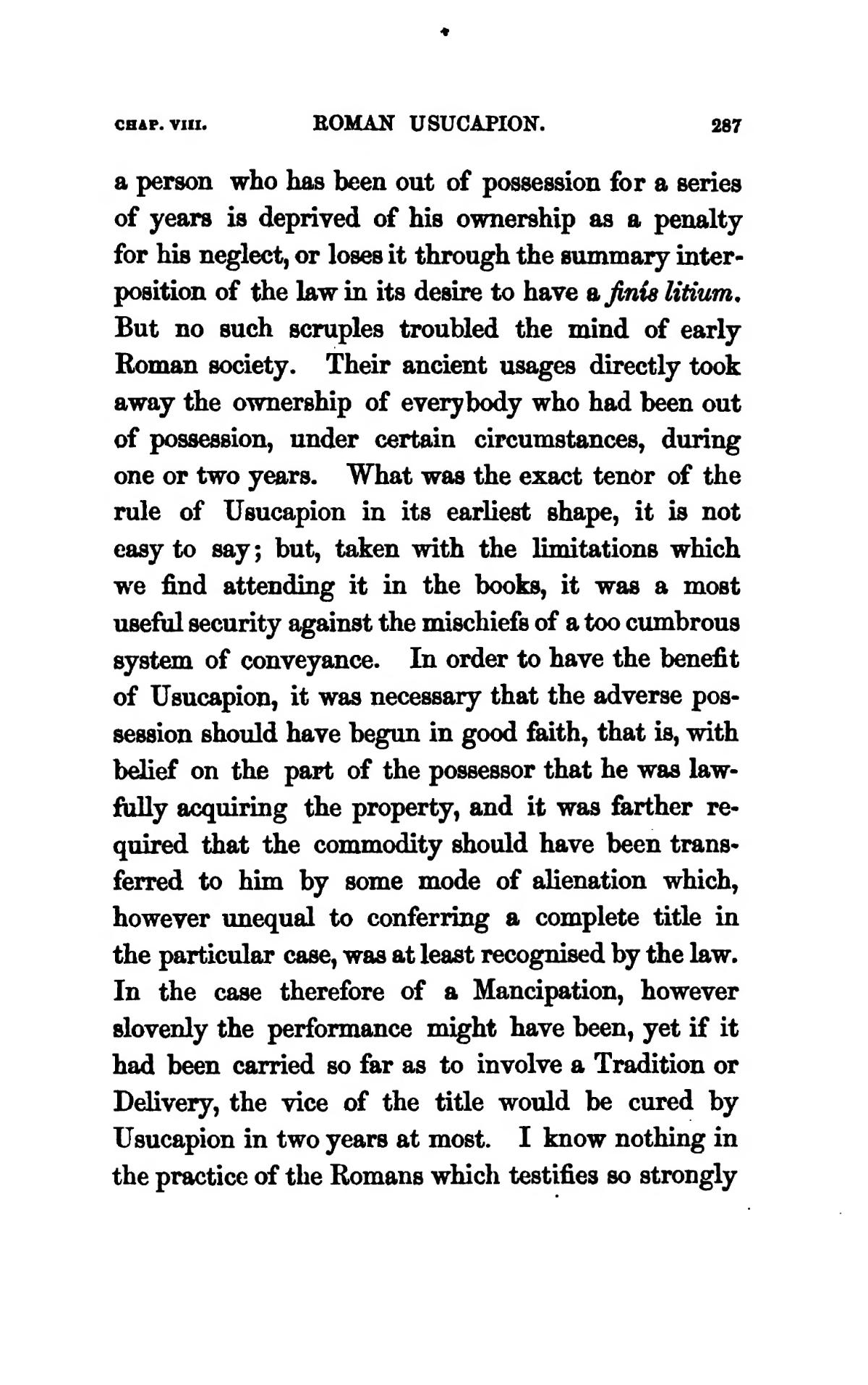a person who has been out of possession for a series of years is deprived of his ownership as a penalty for his neglect, or loses it through the summary interposition of the law in its desire to have a finís litium. But no such scruples troubled the mind of early Roman society. Their ancient usages directly took away the ownership of everybody who had been out of possession, under certain circumstances, during one or two year. What was the exact tenor of the rule of Usucapion in its earliest shape, it is not easy to say; but, taken with the limitations which we find attending it in the books, it was a most useful security against the mischiefs of a too cumbrous system of conveyance. In order to have the benefit of Usucapion, it was necessary that the adverse possession should have begun in good faith, that is, with belief on the part of the possessor that he was lawfully acquiring the property, and it was farther required that the commodity should have been transferred to him by some mode of alienation which, however unequal to conferring a complete title in the particular case, was at least recognised by the law. In the case therefore of a Mancipation, however slovenly the performance might have been, yet if it had been carried so far as to involve a Tradition or Delivery, the vice of the title would be cured by Usucapion in two years at most. I know nothing in the practice of the Romans which testifies so strongly
Page:Ancient Law.djvu/300
CHAP. VIII.
ROMAN USUCAPION.
287
